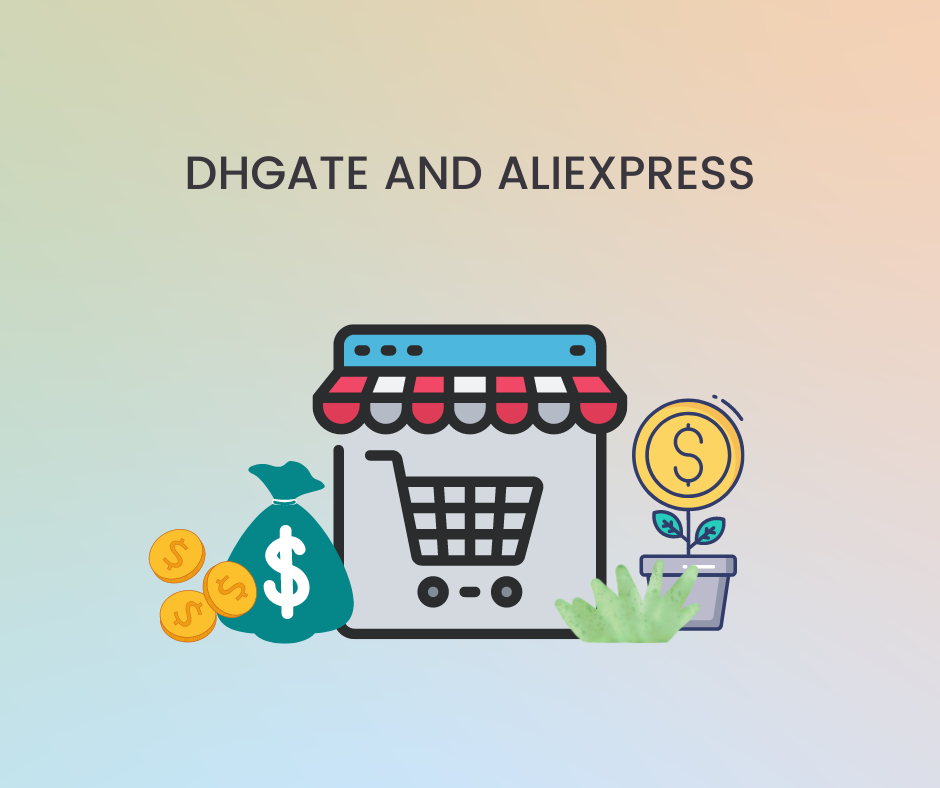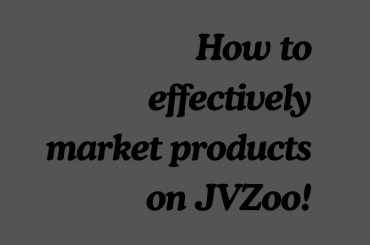Comparing DHgate and AliExpress: Pros, Cons, and Key Differences
As you explore online marketplaces for wholesale and retail products, you may find yourself weighing the merits of DHgate and AliExpress. These two popular platforms offer a vast array of goods from Chinese suppliers, but they differ in key aspects that could impact your shopping experience. Understanding the pros, cons, and distinguishing features of each platform is essential for making informed purchasing decisions. In this comprehensive comparison, you’ll discover how DHgate and AliExpress stack up against each other in terms of product selection, pricing, shipping options, and customer protection. By the end, you’ll be equipped to choose the platform that best suits your needs as a buyer or reseller.
Introduction to DHgate and AliExpress
DHgate and AliExpress are two prominent Chinese e-commerce platforms that have gained global popularity for their vast product selections and competitive pricing. DHgate is primarily a B2B marketplace focused on small wholesale orders, catering to retailers and wholesalers from developed countries like the US and Europe. On the other hand, AliExpress, launched by Alibaba Group, is a B2C platform connecting Chinese retailers with global consumers, particularly those in developing countries.
Both platforms offer economical shipping options and have introduced faster specialized shipping routes to improve delivery times. While DHgate is known for its wholesale purchasing options and wider availability of brand replicas, AliExpress provides live customer service support and is popular among dropshippers for product testing. Understanding these key differences can help buyers choose the platform that best suits their needs.
Is DHgate legal in the US?
Yes, DHgate is a legitimate and legal online marketplace that connects Chinese sellers with buyers worldwide, including in the United States. As a reputable platform, DHgate implements strict policies and buyer protection measures to ensure a safe shopping experience.
Legitimacy and Safety
DHgate has partnered with high-quality, legally operating suppliers, many of which are industry leaders. The company’s millions of global buyers, including large businesses and government entities, further attest to its trustworthiness. DHgate also adheres to legal requirements, paying taxes to the Chinese government and maintaining quality management system certification.
Buyer Protection
To shop safely on DHgate, thoroughly research sellers, read reviews, and only make purchases through the official platform. This approach allows you to take advantage of DHgate’s robust buyer protection policies, including returns and refund guarantees, order tracking, and dispute resolution services.
Pricing and product range on DHgate vs. AliExpress
Product Selection and Pricing Models
When comparing DHgate and AliExpress, it’s important to understand their distinct product ranges and pricing structures. AliExpress boasts over 100 million products across various categories, catering primarily to individual consumers and small businesses. Its pricing model favors single-item purchases, making it ideal for dropshippers and those seeking retail prices.
In contrast, DHgate offers around 30 million products, focusing mainly on electronics, gadgets, and fashion. DHgate’s strength lies in its wholesale pricing, which becomes more competitive for bulk orders. This makes it particularly attractive to medium and large-sized businesses looking to stock inventory.
Target Markets and Buying Strategies
AliExpress is better suited for individual buyers and small-scale entrepreneurs. Its diverse product range and retail-oriented pricing make it ideal for those starting dropshipping businesses or seeking unique items. DHgate, with its wholesale focus, caters more to established businesses looking to purchase in larger quantities at lower per-unit costs.
Shipping costs and delivery times from DHgate and AliExpress
AliExpress: Variety and Speed
When it comes to shipping, AliExpress offers a range of options to suit different needs and budgets. Their standard shipping is cost-effective but takes 15-30 working days. For those in a hurry, expedited services like DHL can deliver in just days, albeit at a higher cost. This flexibility makes AliExpress appealing for both budget-conscious shoppers and those needing quick delivery.
DHgate: Bulk Savings with Longer Waits
DHgate, on the other hand, focuses more on bulk orders. While their shipping options are more limited, with ePacket being a common choice taking 7-45 business days, the platform can offer significant savings for larger purchases. However, be prepared for potentially longer wait times, as products often come directly from manufacturers.
Comparing Costs
For single-item purchases, AliExpress generally offers cheaper shipping. However, DHgate’s bulk pricing model can make it more cost-effective for larger orders, despite potentially higher shipping fees.
Are the clothes from DHgate real?
When shopping on DHgate, the authenticity of clothing can vary. While DHgate is a legitimate B2B e-commerce platform, not all sellers offer genuine branded products. To ensure you’re getting authentic clothes:
Verify seller credibility
- Check the seller’s ratings and reviews
- Look for high positive feedback and on-time delivery rates
- Examine their experience in the industry
Scrutinize product details
- Carefully inspect product images for quality indicators
- Compare prices to official branded products
- Read customer reviews thoroughly
DHgate implements strict quality control measures to ensure product authenticity. However, buyers should remain vigilant. When in doubt, start with a small order to test the seller’s reliability before making larger purchases. Remember, significantly lower prices often indicate replicas rather than genuine branded items.
Seller ratings and buyer protection on DHgate and AliExpress
When comparing DHgate and AliExpress, two crucial factors to consider are seller ratings and buyer protection policies. Both platforms offer robust systems to safeguard shoppers, but there are some notable differences.
AliExpress provides a user-friendly interface with detailed seller ratings, making it easy to assess vendor reliability. Their buyer protection includes refunds for non-delivery or incorrect items, with a strong focus on dispute resolution.
DHgate also offers comprehensive buyer protection, including refunds and dispute handling. While their seller rating system may be less intuitive, it still provides valuable insights into vendor performance.
Both platforms prioritize customer safety, but AliExpress’s more accessible rating system might give it a slight edge for less experienced buyers. However, DHgate’s wholesale focus can make it attractive for bulk purchases, potentially offsetting this difference for some shoppers.
Mobile apps and user experience on DHgate and AliExpress
Both DHgate and AliExpress offer mobile apps that enhance the shopping experience for users on the go. AliExpress is known for its user-friendly interface, making it easy for individual consumers to browse and purchase products. The app boasts a wide range of features, including order tracking, personalized recommendations, and favorites management.
DHgate’s mobile app, while functional, may be slightly less streamlined than AliExpress. However, it still provides essential tools for buyers, particularly those focused on wholesale purchases. Both platforms offer iOS and Android versions, ensuring accessibility for most smartphone users.
Your choice between DHgate and AliExpress may depend on your specific needs. For a feature-rich consumer experience, AliExpress might be preferable. For businesses prioritizing bulk purchases, DHgate could be the better option.
dhgate FAQ
What is DHgate?
DHgate is a B2B wholesale platform based in China that connects global buyers with Chinese suppliers. It offers over 30 million products, focusing primarily on electronics, gadgets, and fashion items. Unlike AliExpress, which is a B2C retail marketplace, DHgate specializes in wholesale transactions.
How does DHgate compare to AliExpress?
While both platforms offer Chinese products, there are key differences:
- Pricing: DHgate generally has higher prices for single items but offers better bulk discounts.
- Shipping: DHgate mainly uses ePacket shipping (7-45 days), while AliExpress offers more options.
- Buyer protection: AliExpress has a more comprehensive buyer protection policy compared to DHgate.
- Product authenticity: DHgate is known for having more replicas of brand name products, which AliExpress regulates more strictly.
Conclusion
As you weigh the merits of DHgate and AliExpress, consider your specific needs as a buyer or seller. Both platforms offer access to a vast array of products at competitive prices, but each has its strengths. DHgate may be preferable if you’re seeking higher-quality items or bulk purchases, while AliExpress could be your go-to for individual consumers and a more user-friendly experience. Ultimately, your choice will depend on factors such as product selection, pricing, shipping options, and customer support. By carefully evaluating these aspects, you can determine which platform aligns best with your e-commerce goals and make an informed decision for your online shopping or selling endeavors.





